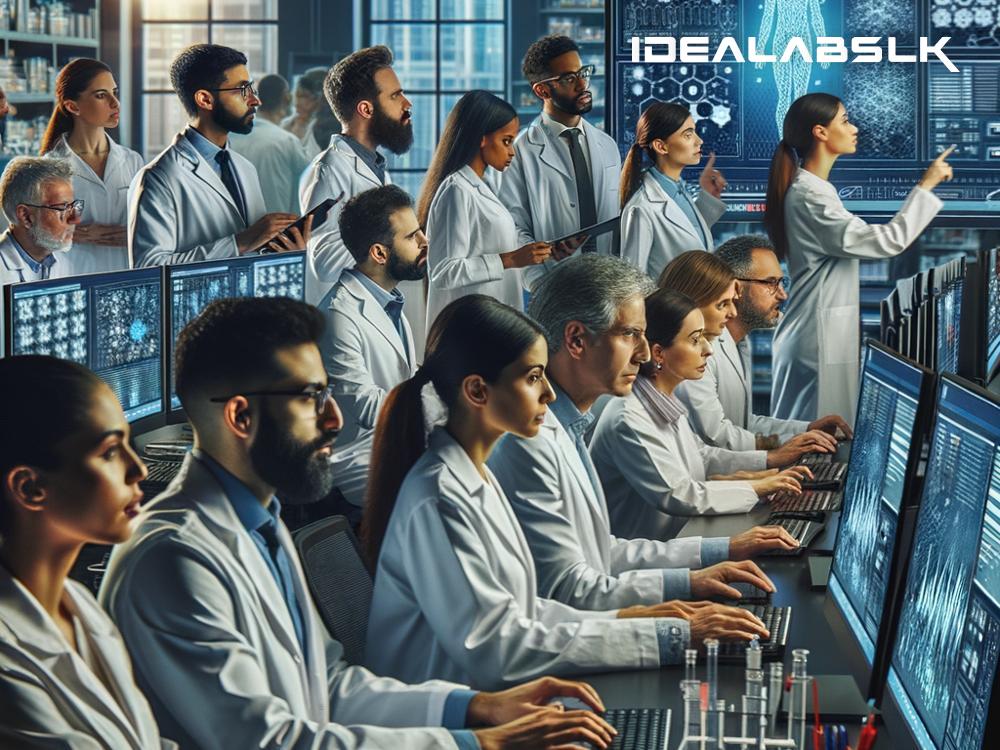Title: The Amazing Ways Technology is Transforming the Pharmaceutical World from A to Z
In recent years, technology has been a game changer for many industries, and the pharmaceutical sector is no exception. From the very beginning stages of discovering new drugs to the final step of getting these medications into the hands of patients, technology is revolutionizing the process at every turn. Let’s dive into the fascinating world of pharmaceuticals and discover how technology is making significant strides in improving healthcare for everyone.
The Magic of Drug Discovery
Once upon a time, discovering a new drug was like looking for a needle in a haystack. Scientists had to test thousands of compounds, and it took years, even decades, to find a promising candidate. But now, with the help of technology, the process has become much more efficient and a lot less like a wild goose chase.
Artificial intelligence (AI) and machine learning are at the forefront of this revolution. These technologies can analyze vast amounts of data in a fraction of the time it would take humans to do the same. They can predict which compounds are most likely to be effective against particular diseases, significantly speeding up the discovery phase. Think of it as having a super-smart robot sidekick that can quickly sort the wheat from the chaff.
Clinical Trials: Faster, Smarter, and Safer
Once a potential drug is discovered, it must undergo clinical trials to ensure it's effective and safe for human use. Traditionally, this has been a slow and cumbersome process, with a lot of paperwork and logistical nightmares. However, technology is now paving the way for smoother, faster trials.
Electronic data capture systems, for example, allow researchers to collect and analyze data more efficiently, reducing errors and speeding up the process. Wearable technology, like fitness trackers, can monitor patients’ health in real-time, providing valuable data without requiring constant visits to the trial site. Remote monitoring and telemedicine are also making it easier for more people to participate in trials, leading to more diverse data and ultimately safer, more effective drugs.
Manufacturing: A Dose of Efficiency
Manufacturing pharmaceuticals is a complex and meticulous process, where even the smallest error can have significant consequences. Thankfully, technology is helping to streamline this process, making it more efficient and less prone to human error.
Robotics and automation, for instance, are taking over repetitive tasks, freeing up human workers for more complex activities and reducing the chance of mistakes. Advanced analytics and the Internet of Things (IoT) are enabling manufacturers to monitor and optimize every stage of the process, from the mixing of compounds to the packaging of pills, ensuring high-quality products are produced consistently.
Distribution: Getting Medication to Patients Faster
The journey of a drug doesn’t end once it's manufactured; it still needs to make its way to hospitals, pharmacies, and ultimately, patients. Technology is making this last leg of the journey faster and more efficient.
Blockchain technology, best known for powering cryptocurrencies, is improving the security and traceability of drugs, helping to combat counterfeit medications and ensuring patients receive genuine products. Meanwhile, drones and autonomous vehicles are beginning to be used for delivering medications to remote or hard-to-reach areas, making healthcare more accessible to all.
Conclusion: A Bright Future for Pharmaceuticals
The pharmaceutical industry is undergoing a technological transformation that is making the journey from drug discovery to patient access faster, safer, and more efficient. By harnessing the power of AI, machine learning, robotics, and other technological advancements, we are not only able to bring life-saving medications to market more quickly but also ensure they are of the highest quality and accessible to those in need.
As technology continues to evolve, the future of pharmaceuticals looks brighter than ever. This revolution is not just about making processes more efficient; it's about improving healthcare outcomes for patients around the globe. In the end, that’s what really matters, and it's exciting to think about the role technology will play in shaping the future of medicine.

